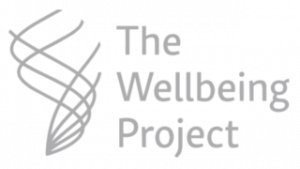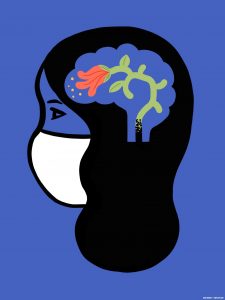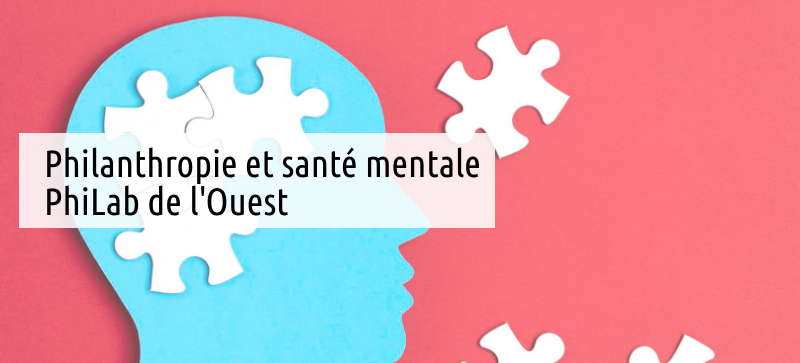A brief introduction of the Wellbeing project
 Founded in 2015, The Wellbeing Project is addressing the issue of the inner wellbeing and mental health of everyone working on the frontlines of social change; an issue that has become even more critical during Covid-19. The Project is a co-creation between Ashoka, Esalen, Impact Hub, Porticus, the Skoll Foundation and Synergos. We choose to work as a collaborative co-creation as we believe that the differing perspectives and capacities of several partnering organizations will enable us to more powerfully galvanize the emerging cultural shift towards inner wellbeing for changemakers.
Founded in 2015, The Wellbeing Project is addressing the issue of the inner wellbeing and mental health of everyone working on the frontlines of social change; an issue that has become even more critical during Covid-19. The Project is a co-creation between Ashoka, Esalen, Impact Hub, Porticus, the Skoll Foundation and Synergos. We choose to work as a collaborative co-creation as we believe that the differing perspectives and capacities of several partnering organizations will enable us to more powerfully galvanize the emerging cultural shift towards inner wellbeing for changemakers.
Over the last 7 years, the Project has been at the heart of a cultural shift that has started to bring the inner wellbeing and mental health of changemakers into the mainstream. Our work includes:
- Facilitating direct support programming for global social change leaders and organizations with coaches, retreats, stipends, peer learning and inner development work.
- Building credible evidence demonstrating the connection between inner wellbeing and effective social change through groundbreaking research in partnership with leading investigative institutions.
- Building a coalition of more than 200 leading global, regional and local organizations which have begun integrating inner wellbeing at the heart of their organizations and work; from global leaders such as Ashoka and the Aspen Institute to key grassroots organizations around the world.
- Storytelling to communicate our work with the broader field along with narrative change strategies to normalize inner wellbeing in the social change field.

Credit: Jamie Bennett
What is the role of grantmakers / the philanthropy sector in The Wellbeing Project and its mission?
The Wellbeing Project has increasingly been thinking about the role of the philanthropic ecosystem and how to support it in catalyzing a culture of inner wellbeing for all changemakers. To that end, we are more intentionally engaging with thematic and geographic donor networks and launching various new initiatives to nurture the philanthropic community to embody and catalyze a culture and practice of care and wellbeing for all changemakers.
Specifically:
- Fundraising Group – A learning group for social change organizations that have begun internalizing wellbeing practices and are now searching for the necessary resources and funding to do so.
- Integrating Wellbeing in Philanthropy – A learning group for individual high net worth philanthropists from across the globe that are interested in developing and leading a strategy that takes bold, concrete steps to catalyze a culture of support for changemaker wellbeing.
- Funders Group – Next year TWP will launch a two-year learning journey providing research, best practices and a peer community of practice to foundations and grantmakers around the world that want to embed inner wellbeing in their grantmaking and programming.
- Global Wellbeing Innovation Fund – in partnership with the Impact Hub, the Fund will address the current funding gap for organizations that are ready to implement wellbeing practices and programming, but don’t have the financial resources to do so.
What can grantmakers do to support the individual wellbeing of social changemakers?

Credit: Osheen Siva
The first thing foundations and grantmakers can do is recognize and understand that increased inner wellbeing of changemakers is directly linked to more creative, collaborative and sustainable social change. We recommend checking out our resources below to begin or continue on that learning journey. A deeper focus on the wellbeing of social change leaders and organizations isn’t just about preventing burnout (although that’s a very important aspect), it also fuels collaborative and transformative relationships that create new possibilities.
At some point during this learning journey, funders might find themselves ready to begin implementing concrete practices that constitute an infrastructure of inner wellbeing and mental health support for their partners. In our experience, we have observed the following strategies in philanthropy: leadership coaching, wellbeing stipends, sabbaticals, multi-year flexible funding, simplified grant application and reporting forms and creating space for honest conversations, among others.
Finally, it’s important for philanthropic actors to know that their journey towards embedding inner wellbeing in their work may look very different from that of others. In our experience and research, there are a myriad of pathways forward. Foundations and grantmakers should take the time to listen to their staff and grantee partners to adequately respond to the needs of their community.
The Wellbeing Project invites you to review the free resources below and reach out if you’d like to learn more: dana@wellbeing-project.org

Credit: Emily Perelman
- How Funders Can Support Individual Well-Being
- Funding well-being is investing in social change
- Report: How changemakers’ inner wellbeing influences their work
- WELLbinar series: Bridging our Inner and Outer Worlds
- The Centered Self Article Series
Cet article fait partie de l’édition spéciale de Décembre 2021 : Philanthropie et santé mentale. Vous pouvez trouver plus d’informations ici


